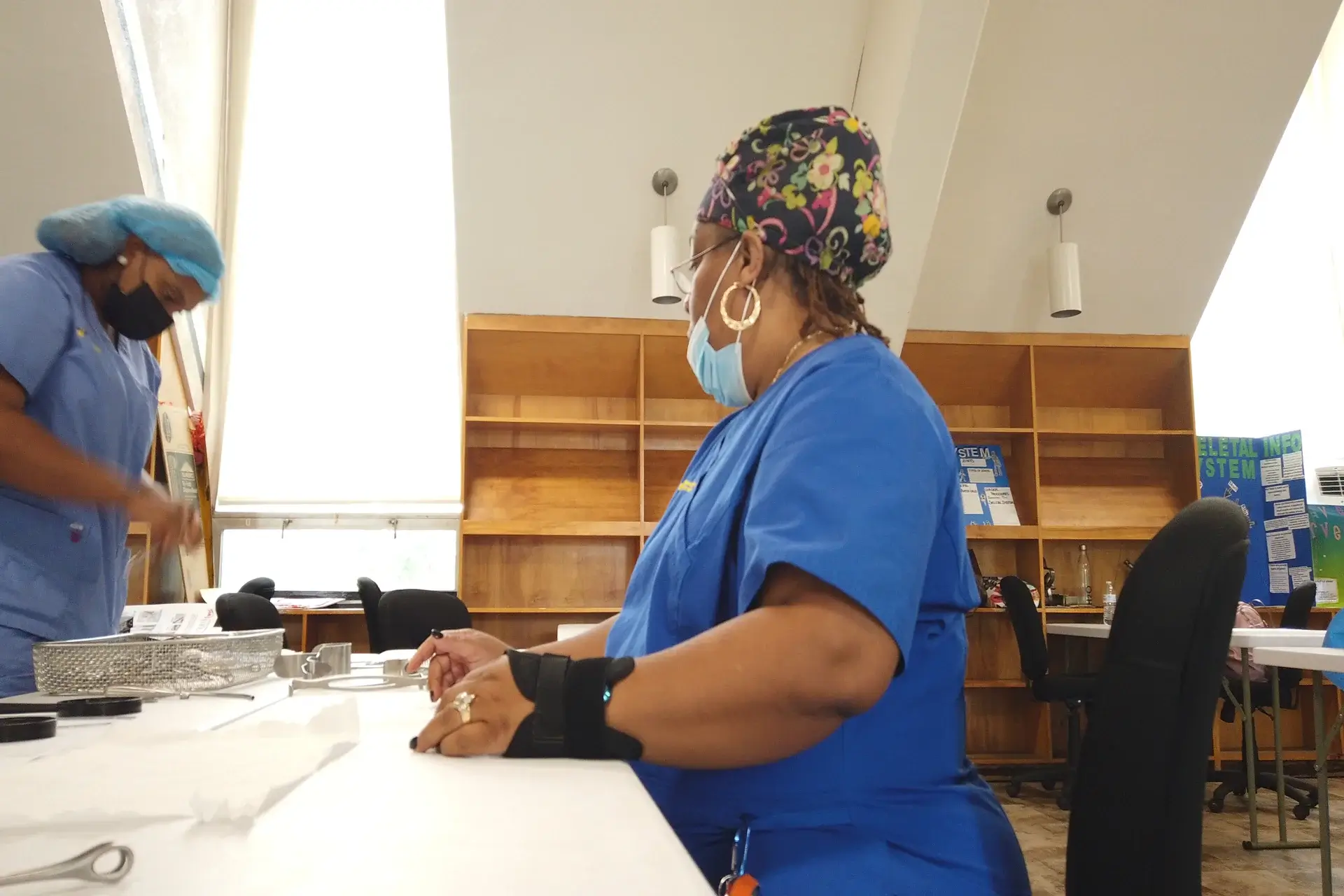Sterile Processing Technicians – Considered Life Savers Even By The Surgeons
A sterile processing technician commonly labors in a medical facility assisting to deter the spread of disease by sterilizing medical appliances. A sterile processing technician is credible for accomplishing the sterilization procedure and decontamination of all laboratory appliances and medical equipment to prevent the extent of infections, particularly in medical processes and critical laboratory tests.
As a sterile processing technician, one would work behind the scenes in the medical community. SPD Techs are some of the most significant team members in a hospital’s arsenal–responsible for eradicating infections, maintaining supplies, and manually cleaning tools to be utilized in crucial surgeries.
Responsibilities Of A Sterile Technician
Sterile technicians pursue a strict procedure of sterilizing appliances, which consists of replacing defective devices, and proper waste strategies of disposable items. They must also stick to the safety and sanitary principles on duty. They monitor supplies, provide sterilized appliances to reasonable medical personnel, and organize devices for medical processes.
They are credible for the following jobs:
- Achieve trauma activity within the unit.
- Manage the orders of surgical and emergency appliances for internal customers.
- Train Honduras hospital personnel on AAMI and IAHCSMM standards.
- Sterilize tools and supplies using STERRAD, steam and ethylene oxide gas sterilizers.
- Work instantly with RN’s and MD’s to enable position patients for surgery and hold limbs for sterile prep.
- Help surgeons during operating room processes.
- Experience with mobile procedures in ER, IR and ICU.
- Help doctor’s with ERCP techniques RX system (short wire).
- Blood draw’s, EKG’S, splinting and helping doctor with pleats.
- Learned about the ERCP process.
- Deliver stat rules for the nurses.
- Transport and stabilization of trauma victims.
- Attend SGNA traditions to increase more knowledge.
- Prepare a computer for EUS (Sonograms).
- Work on the inventory and tracking objectives.
With such a vital multitude of functions being played by the sterile technicians in their day-to-day life, dismissing their contribution in the triumphant completion of most of the surgeries in hospitals and clinics cannot be done. This is why even surgeons feel thankful to them.
If surgical technologies are front and center in operating compartments, much like actors in a play, sterile processing technicians mainly work behind the scenes, as a producer would do for that similar play. While not present in or during the surgery, sterile techs are crucial contributors to every surgery’s success.
Skills These Technicians Possess
Sterile processors retain a bunch of skills that facilitate them to accomplish their day-to-day responsibilities with much convenience and preparedness. Without these skills, one can understand how low success rates of surgical undertakings would be.

Carefulness
Sterile Processing Technicians are the major line of defense against infection in healthcare settings. Their purpose is so significant that hospitals and other facilities wouldn’t be eligible to work without them. Given that, it’s not shocking sterile techs must be careful.
Patience
Patience is essential for this role. One will expend our whole shift washing, flushing, drying, then disinfecting every screw, hinge, tube, and crevice. Then each portion must be reassembled appropriately for patient safety and surgical efficacy. Sterile Process tech does not have direct connection with patients, but their responsibilities are crucial to keeping patients comfortable, and patience is significant to perform those duties properly.
Compliance
With the security of patients and care providers in a sterilization tech’s hands, it’s significant for them to follow the rules. If they don’t, safety could be jeopardized, and the results could be horrible.
Love For Detail
Clearly, details are a significant part of a sterilization tech’s day. Those elements are important, especially because ignoring them may endanger patients. Improved regulation also means Sterile Processing techs want to be on top of every detail, every time.
Analytical/hands-on Skills
These comprehensive individuals are in charge of the surgical device and medical device decontamination, organization, and packaging. This career is not restricted to theory and concepts. Although they survey the theory and concepts behind their work, they must be hands-on and analytical to get the job done.

Sterile Processing Technician Career Projections
Being a sterile processing technician requires concentration, scrutiny to detail and great responsibility, but it’s a rewarding career that should grow as more people fall under the umbrella of medical insurance and the amount of surgeries increase.
According to marketdataforecast, the size of the global sterilization services market is predicted to grow USD 9.32 billion by 2026 from USD 6.06 billion in 2021, showcasing a CAGR of 9.0% from 2021 to 2026. Individuals curious in a healthcare career who prefer working behind the scenes rather than in the spotlight should examine thoroughly what it takes to become a sterile processing technician.
Conclusion
This job requires passion, dedication, patience, precision, and a meticulous approach to guarantee the safety and wellbeing of patients and staff. Technical skills aren’t the only ones needed to perform this job well. To succeed as a sterile processing technician,one not only needs to be able to work unaided, but you also need to have strong interpersonal skills to successfully collaborate and work with colleagues.
One will interact with other medical staff on a daily basis which needs excellent communication skills in order to build relationships and prevent mistakes induced by miscommunication.
Tags: Sterile process tech, sterile processing technician, Sterile processors, Sterile technician, Sterile technicians, sterile techs